Compounding Pharmacy for Pigmentation
At Zenith Pharmacy we make personalised medications for Skin Pigmentation.
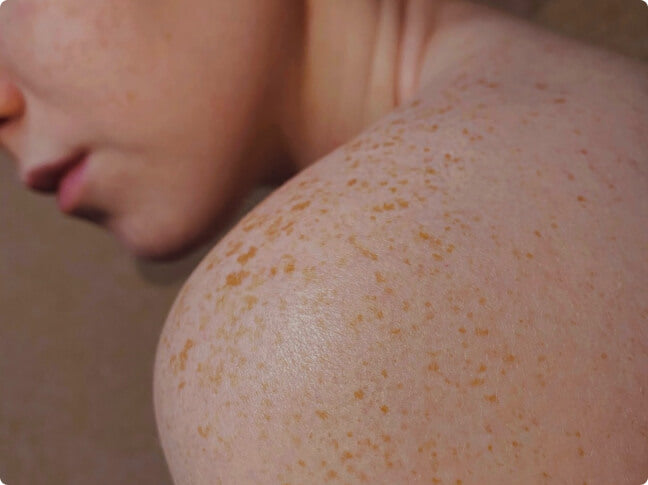
Dark spots on the skin are common
Pigmentation conditions that affect your skin are common.
Dark spots on your skin, especially on your face, can be concerning and distressing to some people, whether they are due to a diagnosed pigmentation disorder or the result of ageing.
Skin pigmentation disorders occur when the melanocyte cells that produce melanin – the hormone that controls the colour of your skin – change their function or become damaged.
This often happens in discrete areas. This could mean a hyperpigmentation from too much melanin that causes a darker spot, or a hypopigmentation from too little melanin that leads to a lighter area on the skin.
Prescription and over the counter treatments for these conditions include hydroquinone cream, kojic acid cream and serum, tretinoin and Vitamin C serum.
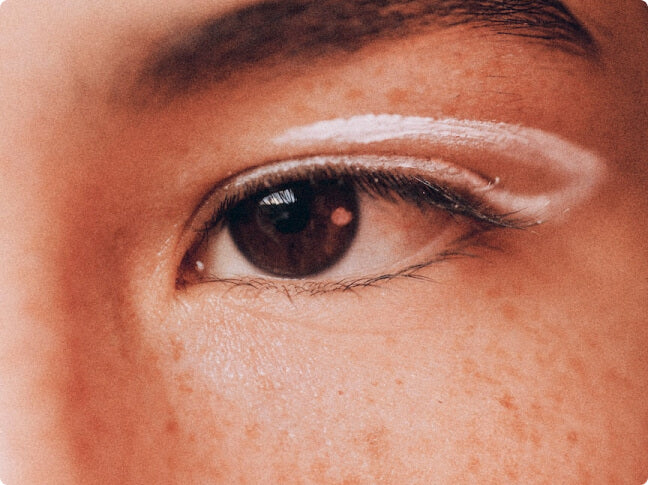
What Causes Pigmentation Conditions
Hyperpigmentation conditions include age spots (lentigines), dry, dark patches of skin (acanthosis nigricans) or raised age spots (seborrhoeic keratoses).
Many people of African, Asian, Indian, or Polynesian backgrounds also experience the harmless dermatosis papulosa nigra condition of small raised spots on the face and neck.
Following an infection or injury, some people including children can experience postinflammatory hyperpigmentation (dark spots on the skin) or postinflammatory hypopigmentation (light spots on the skin). It can emerge after conditions such as acne, dermatitis or eczema.
Other genetic conditions that can impact melanin production in the skin cells
-
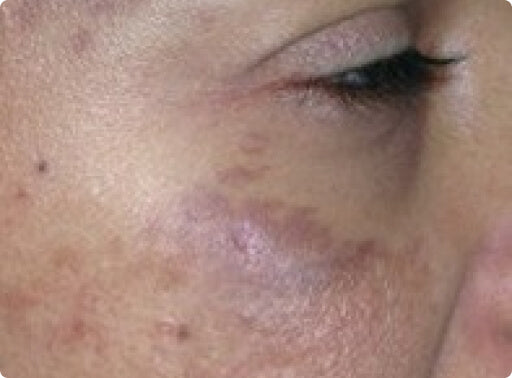
Naevus of Ota
Naevus of ota are darker birthmark smooth spots and patches that are coloured brown grey or blue. People are generally born with the pigmentation. The naevus of ota refers to a patch on the side of the forehead or around the eye.
-
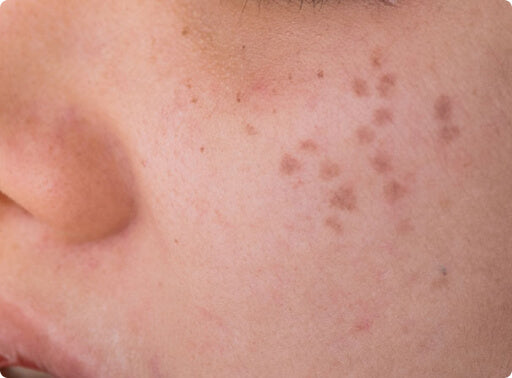
Hori’s naevus
Hori’s naevus is a darker patch or spot, often on the cheeks, that appears in adulthood. It is most common in women of Asian background.
-

Albinism
Albinism is an inherited condition where the body produces less or no melanin, which colours the skin and hair. It also contributes to eye and vision development.
-
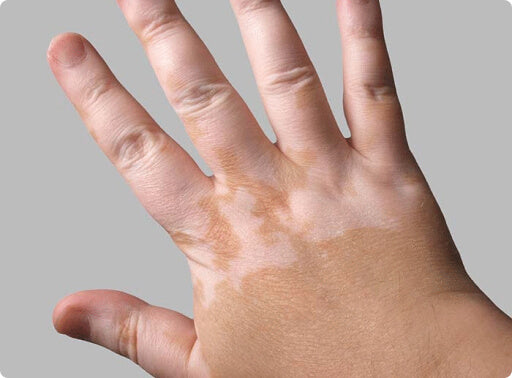
Vitiligo
Vitiligo is a common condition where lighter patches appear on the skin. The white spots and patches are caused when the cells that produce the skin-colouring hormone melanin are damaged or destroyed. It can be a small patch or across significant areas of your skin. About one in 10 people who experience vitiligo have a family history of the condition.
-

Melasma
Melasma is a common skin condition where dark spots develop on the face, neck and body. It is common in areas that are more exposed to the sun, such as the forehead and cheeks. Similar to lentigines (freckles), these are dark areas where more melanin was produced.
Treatments for Pigmentation
-
Hydroquinone
Hydroquinone is a formulation that can reduce pigmentation in the skin. It is known as a skin-bleaching agent, a hyperpigmentation treatment, a pigmentation removal cream or a pigmentation cream.
It is used as a topical hydroquinone cream, which can be formulated as a hydroquinone compound cream. It is used for treating areas of hyperpigmentation, such as melasma. Hydroquinone creams in Australia include over the counter products and more concentrated pharmacy-only products.
-
Tretinoin
Tretinoin or retinoic acid is a Vitamin A formula and an antioxidant medication. Tretinoin cream can partially reverse the impact of sun exposure, reducing the appearance of fine lines and lightening pigmentation on the skin.
It is a topical formulation that comes as a pharmacy product – Tretinoin 0.05 cream – in Australia.To purchase Tretinoin in Australia you will require a valid prescription from a doctor.
-
Kojic acid
Kojic acid is another medication that bleaches the skin by stopping the production of melanin. It is also used in as a kojic acid cream or kojic acid serum for hyperpigmentation treatment. For post inflammatory hyperpigmentation treatment or for melasma, this is one of the creams to remove dark spots on skin. In Australia, kojic acid is available over the counter and with a prescription.
-
Vitamin C Serum
Vitamin C serums (ascorbic acid) also act as skin-lightening products to aid hyperpigmentation. It is a type of antioxidant that stimulates the collagen cells in the skin to repair. It can improve fine lines and reduce inflammation.
Vitamin C must be in the right formulation to be effective as it is unstable when exposed to air, light or heat.





